One of Australia’s oldest WWII POWs Arthur Leggett dies, aged 106
Arthur Leggett came home from World War II in ‘a mess’. He spent the rest of his long life fighting for his fellow prisoners of war.
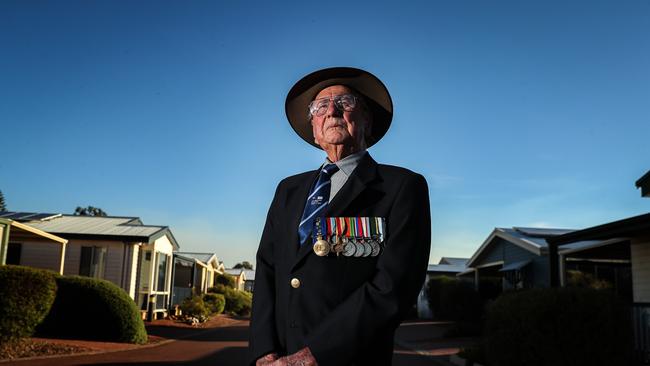
Another living link to the great generation that defended the homeland in World War II has been severed with the death of one of Australia’s oldest surviving prisoners of war, Arthur Leggett.
Mr Leggett, 106, was surrounded by family and loved ones in Perth when he died on Sunday.
His daughter, Maureen Rayson, said he was telling stories of his capture by the Germans in 1941 and being press-ganged into mining coal for them as a POW “right up till the end”.
He was also searingly honest about the struggles he faced after he returned home to civilian life in “a mess”.
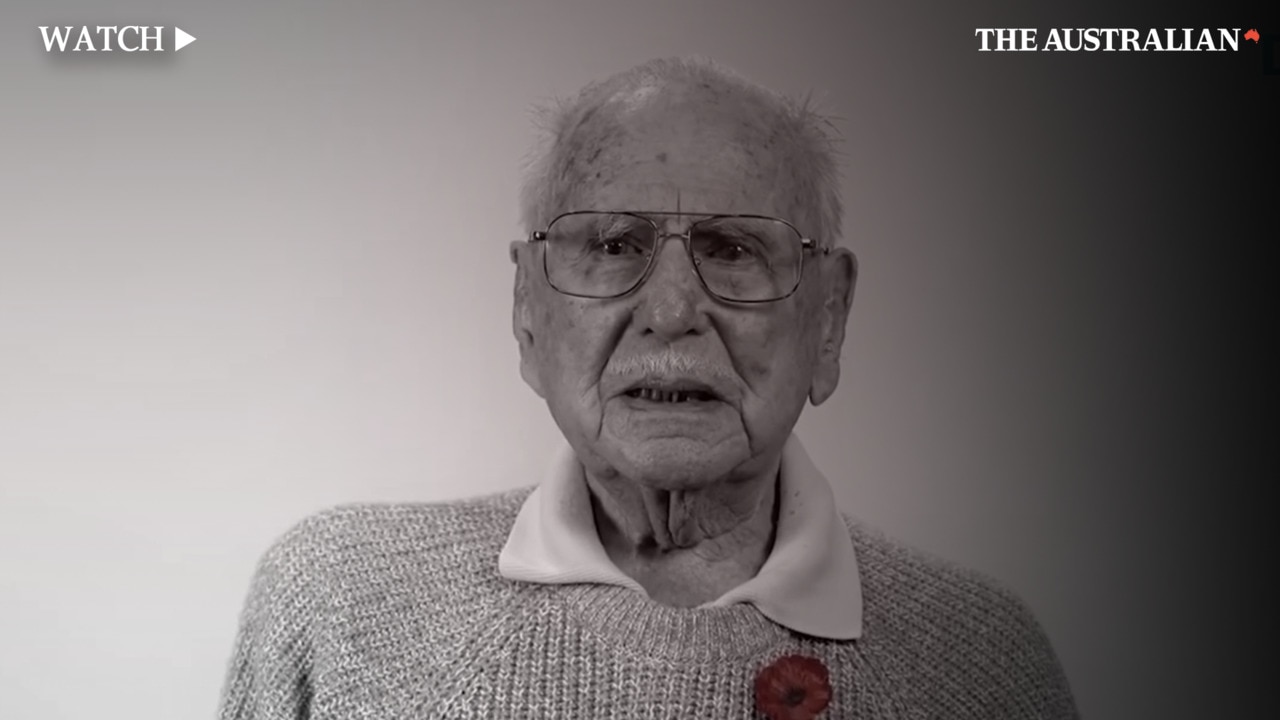
Mr Leggett said he found meaning in helping his mates through the WA Prisoner of War Association and visiting local schools, where he threw himself into mentoring troubled students.
“He always said he was a mess when he got out of the war, which you can understand,” Ms Rayson told ABC Radio on Monday. “And in those days there was no counselling at all – you just got on with it.
“I guess as life went along he realised where he could help other people.”
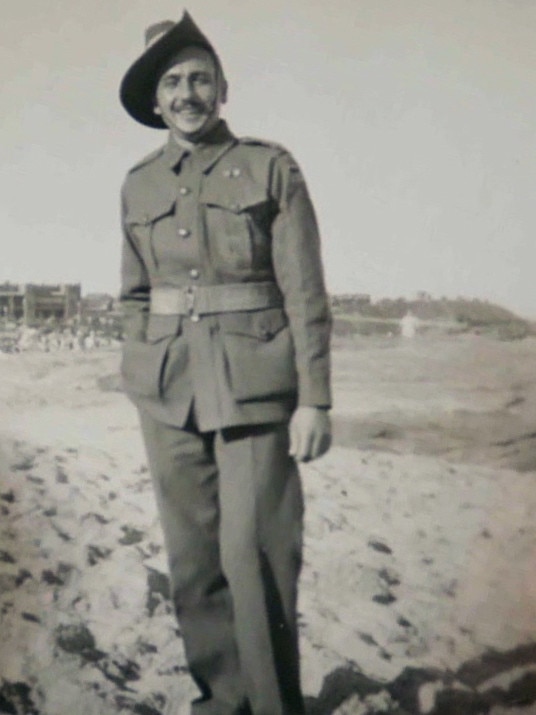
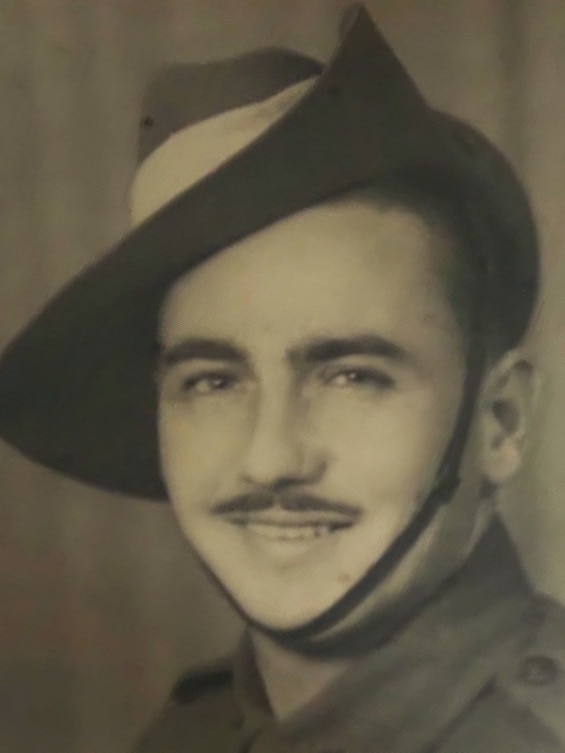
Of the 30,000 Australians taken captive by the Germans, Italians or Japanese during WWII, only five are known to remain, underlining the fading out of that fabled generation. The oldest is 108.
The Department of Veterans’ Affairs warned that the number of surviving WWII veterans had slipped below 1300, out of the nearly 1 million Australians who donned a uniform between 1939 and 1945, some of the darkest days in the nation’s history. Their average age is 99.
By the end of 2026, fewer than 800 are projected to be left, with an average age of 101.5.
Paying tribute to Mr Leggett, Veterans Affairs’ Minister Matt Keogh said Mr Leggett had been captured in the battle in which his own great grand-uncle was killed – the doomed 1941 defence of Crete in the Mediterranean.
“I’m so privileged to have had the opportunity to spend time with him. I’ll always treasure that,” Mr Keogh wrote in a post on social media. “Arthur, thank you for your service and for your contribution, not just in conflict but in the community.”
WA Premier Roger Cook hailed Mr Leggett as a “West Australian hero”.
“As we reflect on Mr Leggett’s incredible life, we are reminded of the true cost of freedom and the enduring legacy of those who served,” Mr Cook said.
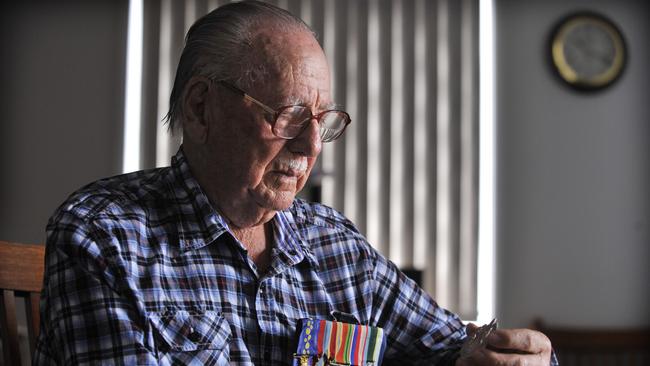
Interviewed in 2004 for the University of NSW’s Australians at War Film Archive, Mr Leggett spoke about his wartime experiences as both a soldier and POW.
When he transferred at the outbreak of the war from the militia in Perth to the army’s newly raised 6th Division – part of the all-volunteer 2nd Australian Imperial Force bound for the Middle East and North Africa – he was initially told that he was 1.25cm short of the minimum height requirement for the AIF.
“I was being measured up and the old soldier said: ‘You’re half an inch short’ and I’m trying to stay on my heels, but he is awake to this,” he said. “Just then, Major Sandover and a fellow called Archie Jackson, awfully British in their accents … are passing and said: ‘Oh … we can’t fight a war without Leggett. Let him in.’
“The next six years were sheer bloody hell. I wish he hadn’t … gone through with it.”
Although he was a signaller, Mr Leggett wielded a rifle during the desperate battle for Crete. When the Australian troops were ordered to surrender by their commanders, he took to the mountains with about 600 diehards. Recounting his capture, he said: “Eventually a German officer walked in with an interpreter and told us they had machine guns up there and mortars over there … ‘and if you want a fight you can have it, but we suggest you give up’.”
He ended up digging coal for the Nazis in a mine in Poland.
Later, as the eastern front gave way to the advancing Soviet Red Army in the last winter of the war, Mr Leggett found himself struggling through snowdrifts on a grim forced march through the Czechoslovakian Alps.
“They just upped the lot of us and marched us out the gate … we started off as prisoners of war and guards, and we finished up as a conglomeration of humanity, actually. We were just moving all the time.”
What was moral like? “There wasn’t much conversation,” he continued. “If you had been marching for a week in snowstorms, mile after mile, just snow and more snow coming in, you feel as though you can’t go another damn step.
“When you think, ‘I’m buggered’, in the gutter there, there would be a political prisoner with a bullet hole between the eyes, and you’d think, ‘maybe I can go a bit further’.”



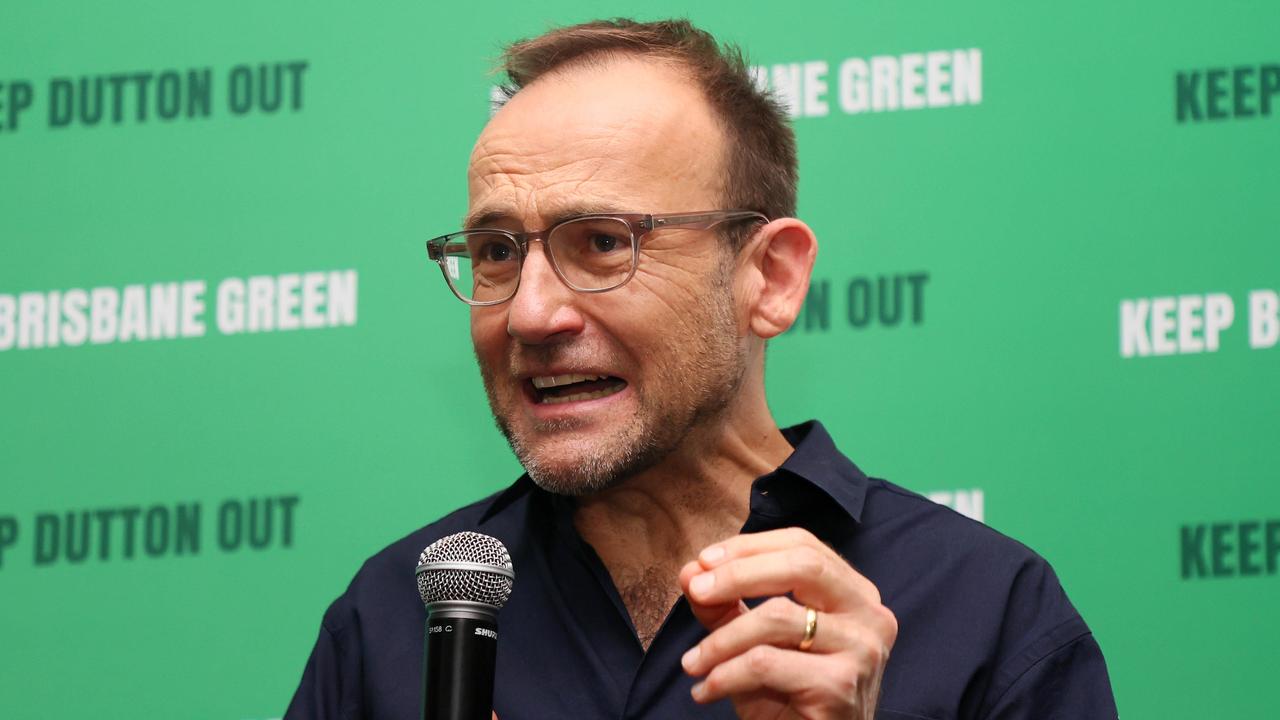
To join the conversation, please log in. Don't have an account? Register
Join the conversation, you are commenting as Logout